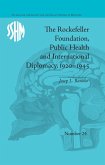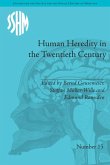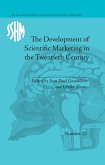The ancients began the embryonic search for answers to questions that had puzzled humans for eons. No systematic approach to the nature of the universe was undertaken until the Sumerians, the Babylonians, and the Greeks began the quest for wisdom. The Greeks, beginning with Thales in the 6th century B.C.E., sought a unifying principle to explain the world as a whole. Because cosmology and medicine were among the few known sciences in ancient times, it was natural that these two apparently disparate disciplines should be combined to provide the theoretical basis of medicine--foundations that were to survive for nearly 2,400 years. This scientific structure rested firmly on the ancient principles of cosmology, astronomy, and the concept of universal harmony. This book tells the tale of these theoretical underpinnings and how they influenced humankind's efforts to maintain health and fight disease. Ultimately, the system was fundamentally flawed. Nonetheless, it lingered on for centuries beyond what common sense tells us it should have.
Few comprehensive analyses of the relationship between cosmology and medicine have been undertaken in the astronomical or medical literature. For better or for worse, cosmological principles have had profound effects on the theory and practice of medicine over the centuries. It is time for historians, astronomers, physicians, and philosophers to acquaint themselves with the impact early cosmology has
Dieser Download kann aus rechtlichen Gründen nur mit Rechnungsadresse in A, B, BG, CY, CZ, D, DK, EW, E, FIN, F, GR, HR, H, IRL, I, LT, L, LR, M, NL, PL, P, R, S, SLO, SK ausgeliefert werden.









